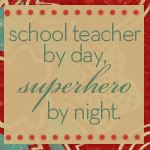The fates would be Lancelot, called Lotto, the furies his wife Mathilde. Both tell the story of their marriage, but both offer differing perspectives. Lotto is the heir to a bottled water fortune, cut off from his fortune by his mom for marrying Mathilde. The two struggle to survive in the early years of marriage. While Lotto struggles to make a living as a playwright, Mathilde scrimps and saves, going without meals so that Lotto may eat, throwing potlucks so that they will be left with the food their friends bring. Despite the premise, Mathilde's story is not simply a retelling of Lotto's story. It is an entirely different perspective, bringing truth to the thought that no one is as they seem on the surface. Certainly not Lotto and certainly not Mathilde. This is not, by any means, an uplifting story, but I still found myself drawn into the chaotic whirlwind that was Lotto and Mathilde's marriage.
Darkness the Color of Snow: A Novel
This is an unusual book in that the title is never really revealed, leaving me to wonder what exactly darkness the color of snow is. Still, I enjoyed this novel. The story opens with Ronny Forbert, a smalltown policeman running a speed trap on a night with dangerous weather. He pulls over a car for speeding and for having a headlight out, only to realize that he's pulling over his childhood best friend--a boy with whom he no longer associates. True to Ronny's childhood, the driver Matt, is under the influence of both drugs and alcohol, as are the others in the car. Ronny demands they all get out--everyone but Matt easily complies. What happens next is a struggle between Ronny and Matt, one that ends with Matt falling (or was he pushed?) into the path of a car. A car that kills him, then leaves the scene of the accident. Following, the town is split, between those who believe that Ronny acted as an officer of the law and those who believe that Ronny killed him out of nothing more than a teenage grudge. The interesting thing about this book is that I didn't feel that the characters were that well-developed, but as someone from a small town... they all made sense. The ending threw me somewhat for a loop and while I might not have enjoyed it, I definitely had to close the book and sit and think on it for awhile.
Let Me Tell You
I love Shirley Jackson. I teach "The Possibility of Evil" and "The Lottery" every year, and I never tire of either. So of course, I couldn't wait to read this posthumous publication of both short stories and essays. I wouldn't recommend starting here if you've never read Shirley Jackson, but as someone who has read all of her published works, this was an unexpected treat. The first short story in the book threw me for a loop, leaving me sufficiently unnerved, but what I really enjoyed were her essays. My favorite was a rumination on being asked to write a children's book, leading her to write this: "I was given a word list, made out by a "group of educators," and asked to confine myself to this list, which included perhaps five hundred words of a basic vocabulary that was felt to be desirable for beginners. "Getting" and "spending" were on the list, but not "wishing"; "cost" and "buy" and "nickel" and "dime" were all on the list, but not "magic"; "post office" and "supermarket" were on the list, but not "Fairyland." I felt that the children for whom I was supposed to write were being robbed, persuaded to accept nickels and dimes instead of magic wishes. This is a very small quarrel; there are many groups of educators who feel that Fairyland is an unhealthy environment for growing minds, but in a choice between television ("television" was on the list) and Fairyland, I know where I would rather have my own children growing up."
I want to hang this on a wall. Oh, what Shirley Jackson would have to say about the education leaders of today, taking away play time and adding in standardized test time.
What are you reading?








